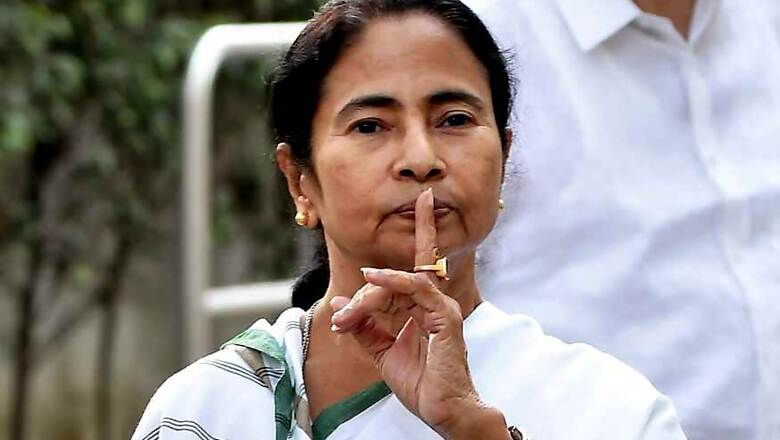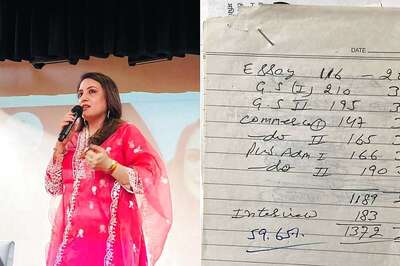
views
Kolkata: A draft of education rules being seen as a media gag order by the Mamata Banerjee government on teachers and other employees of educational institutes has caused a fresh dust-up in Bengal’s higher education circles with a section of teachers now accusing the government of attempting to throttle their democratic right.
Under the scanner of disgruntled teachers are also several other clauses that allegedly attempt to “curtail the academic, administrative and individual rights” of the members of the state’s higher education fraternity.
In the eye of the storm is a recently-formulated draft notification for Rules for the West Bengal Universities and Colleges (Administration and Regulation) Act, 2017 which was moved by the West Bengal education department and passed in the state Assembly last year.
The rules were drafted by a state-appointed seven-member committee constituted in February. Clause 8 in Chapter III of the said rules, which deal with “Bar in Communication of Official Information” explicitly states, “Official information obtained in the course of employment must not be communicated by any employee to any outsider or to the press or electronic media without the written permission of the Vice Chancellor. Violations of the provisions of this statute shall entail disciplinary proceedings against the erring employee.”
It further adds, “No employee of the University shall without the written permission of the Vice Chancellor, publish anonymously or in his own name or in the name of any other person in the press or in any electronic media, any documents or make any statement of fact or opinion –
1. That has the effect of any adverse criticism of any current policy or action of the State Government or the Central Government; or
2. That is capable of embarrassing the relations between the State Government and the Central Government or the Government of any other State or any foreign state”
Adding to the chagrin of the protesting teachers, the draft rules also state that any grievance against penalties imposed by the administrative authorities can only be appealed before a state-appointed three-member Appellate Tribunal.
“The decision of the Tribunal shall be final and binding upon the university or college concerned and the appellant and no suit or proceedings shall lie to any Civil Court against the order of the Tribunal,” Section 21(5) of the draft rules states.
These apart, the move to enhance the probation period of employees of colleges to two years and of universities to three years from the date of appointment from the current one-year probationary period also seems to have drawn considerable flak.
Additionally, the attempt in the draft rules to empower the institution authorities to terminate services of employees in the wake of “unsatisfactory police verification report” has also given rise to apprehensions among protesters of possible misuse of power to manipulate teachers in probation.
However, the state government has refuted the allegation of curbing freedom of speech. State education minister and Trinamool Congress general secretary Partha Chatterjee called them “far from truth” and “a blatant lie”. “We have made it clear that no such rule is being implemented,” a tweet from the official twitter handle of the Trinamool Congress read.
That claim, however, failed to dispel apprehensions among the protesting teachers. “We have experts in every field of knowledge at our university. If implemented, the order would mean we cannot voice our opinions on public issues like the budget or even, for that matter, on issues like gender, environment and so on. The order stops us from performing what we consider as our duty to the society,” said Prof. Nilanjana Gupta, general secretary, Jadavpur University Teachers’ Association (JUTA).
“It is the Act itself which has created the space for these kinds of rules to be drafted and, indeed, attempts are being made to thrust on us a series of such rules. Hence we demand that the Act itself be repealed,” she added.
The JUTA plans to hold a sit in demonstration at Jadavpur University later this month and subsequently step up the intensity of agitation if the state government refuses to pay heed.



















Comments
0 comment